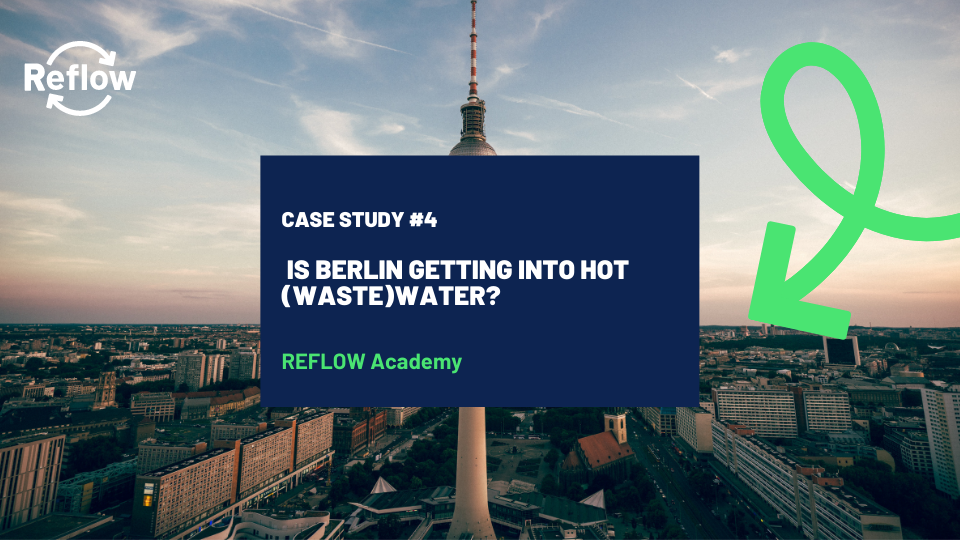REFLOW CASE STUDY #4: Is Berlin getting into hot (waste) water?
06 April 2022
This case study is part of the open source REFLOW case studies collection which is built upon the learnings from activities and actions taking place in the pilot cities of the REFLOW project. The case studies link practice and theory and are designed to be used as teaching material in different academic settings, as circular economy transition in cities can be addressed from different academic lenses – urban studies, consumer studies, business studies, sustainability studies…
Synopsis of the Case
This case is based on a real organisation that has carried out activities as part of the European Union Horizon 2020 project, REFLOW. The case is fictional but, inspired by real events that have occurred.
The protagonist of this case is the head of the Wastewater Heat Department at the water agency Berliner Wasserbetriebe (BWB). BWB is responsible to providing drinking water and wastewater treatment for the city of Berlin. These services and supplies are considered critical infrastructures, and any disruptions to their operations could cause a series of challenges and risks for the city and Germany as a whole. The case focuses on the dilemma of the head of the Wastewater Heat Department as they assess whether to release data on these critical infrastructures in the name of a greener and more circular and regenerative future.
The case is set 2.5 years into the 3-year timeline of the REFLOW project, centring around a solution that the Berlin pilot team has developed to harness the potential of wastewater heat as a climate-neutral source for the city through the power of data. BWB’s R&D Department is a key member of the Berlin pilot team, where they have played an instrumental role in giving access to key data for the development of the solution, the Wastewater Heat Radar. As things were on the way to finalising the development of this solution, the Waste Heat Department, a department in BWB that were outside of the REFLOW project informed the Berlin pilot team that they need to put a halt to their solution. With the rising concern of critical infrastructure (in)security and the obligations for BWB to ensure that these supplies of water and wastewater services are not interrupted by threats or attacks, they needed to discuss the pros and cons of releasing this critical infrastructure data.
Students are asked to put themselves in the shoes of the head of the Wastewater Heat Department at BWB and to consider the question: should a stop be put on the release of wastewater heat potential data or risk the potential security threat to critical infrastructure in Berlin? Pros and cons are outlined in the case study including climate-neutral goals alongside the risks and vulnerabilities associated with publishing information and data on critical infrastructure.
Target Group
The case is suitable for undergraduate and graduate levels in courses on strategic decision making, the energy transition and innovation, cybersecurity, and circular economy.
Learning Objectives
After completion of the case, students should be able to understand the following:
- The potential of wastewater heat as a climate-neutral source of energy
- The importance of data in circular transitions, specifically for wastewater heat
- The challenges of handling critical infrastructure data and how this affects innovative technological solutions
- Arguing for or against a decision
Teaching material
Download the full case study
Download the teaching guide